Anti-drug work 'not making difference needed' in Wales
- Published
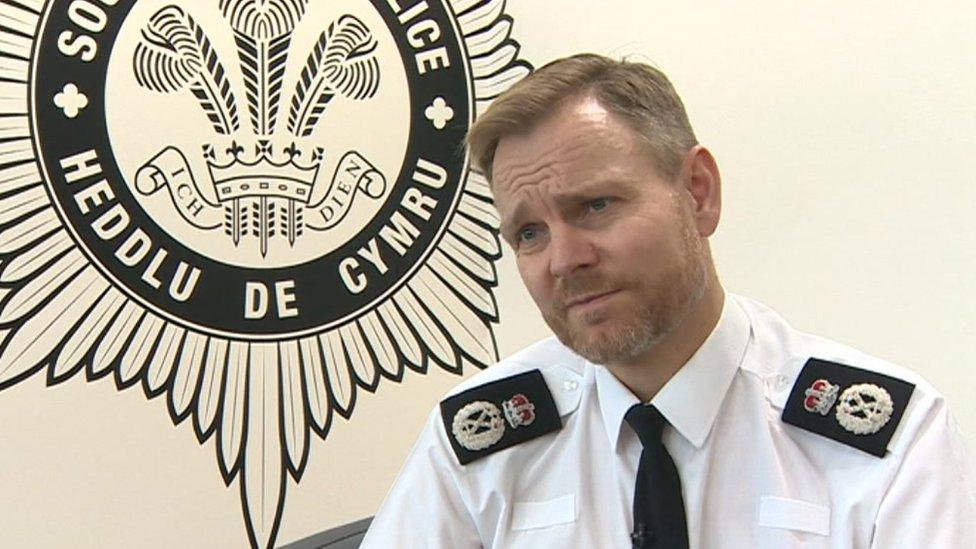
'We need to do something different' said Matt Jukes
Work done in Wales to tackle drug use has not made the difference needed, according to a police chief.
South Wales Police chief constable Matt Jukes said investment to tackle the problem over the past decade has not done enough.
The Welsh Government provides more than £50m every year responding to drug and alcohol addiction.
But Mr Jukes said it was now time to do "something different" amid rising levels of drug-related deaths.
The rate of drug deaths in Wales increased by 84% between 2008 and 2018 - from 39 to 72 deaths per one million population. By 2018, it was more than double that in London.
"We are arresting people every single day but an untreated addict is estimated to commit £26,000 worth of crime a year to fund that habit - so there has to be more focus around treatment," said Mr Jukes.
"The rate of drugs deaths is twice that in London. So we can look back over a decade, understand it's been very difficult for the services after a period of austerity.
"But we've got to look forward and be prepared to look at the evidence around different interventions, whether that is things like safe consumption rooms (or) heroin-assisted treatment."
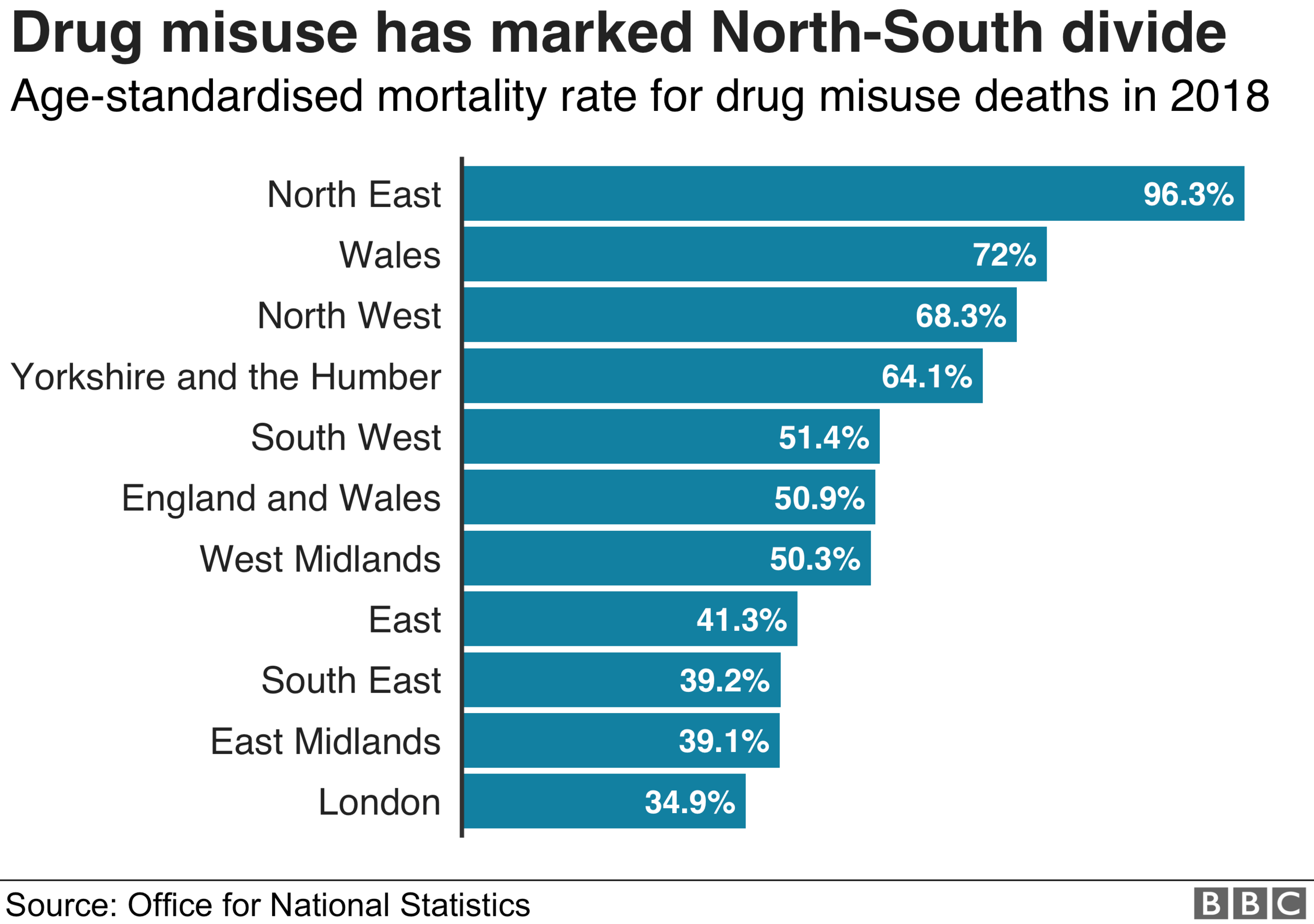
North Wales Police and Crime Commissioner Arfon Jones previously said it was a "national scandal" that people were "dying needlessly" because governments had refused to acknowledge a radical new approach to drug policy was needed.
Mr Jones, a former police inspector, called for "fix rooms" to be introduced as the current approach of tackling drugs is "doomed to continue failing".
The Welsh Government said more than 91% of people began treatment for substance misuse within 20 days of referral.
However, it said any plans for medically-supervised injecting centres was a matter for the UK government.
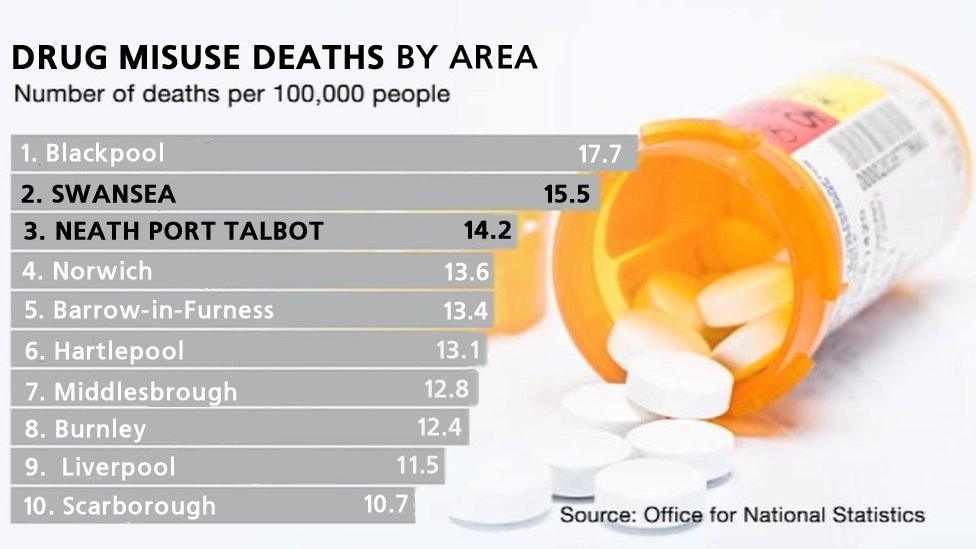
Mr Jukes believes Wales is the ideal location for such a pilot scheme, given Swansea and Neath Port Talbot had the highest rates of drug-related deaths in the UK between 2016 and 2018, after Blackpool.
Swansea also had the highest death rate from opioids in England and Wales.
"If not here then where?" said Mr Jukes.
"You can see high levels of drugs harm in those communities increase sharply in the second half of the last decade.
"Levels which go beyond what you see in other countries and well beyond what you see in other parts of Europe, (so) we need to do something different."
Drug users in Swansea tell the BBC's Rhys Williams they have noticed a rise in substance misuse
Mr Jukes said decriminalising drugs was not the immediate answer and could be a "distraction".
He added: "We need to be hard on organised criminals but we need to support the people who are driving a market which brings that kind of violence and harm into communities as well."
The Welsh Government said it was committed to reducing the effect of substance misuse to people and wider society.
Its Substance Misuse Plan, external focuses on addressing mental health issues associated with addiction and tackling substance misuse among the homeless and prison population.
- Published8 December 2019
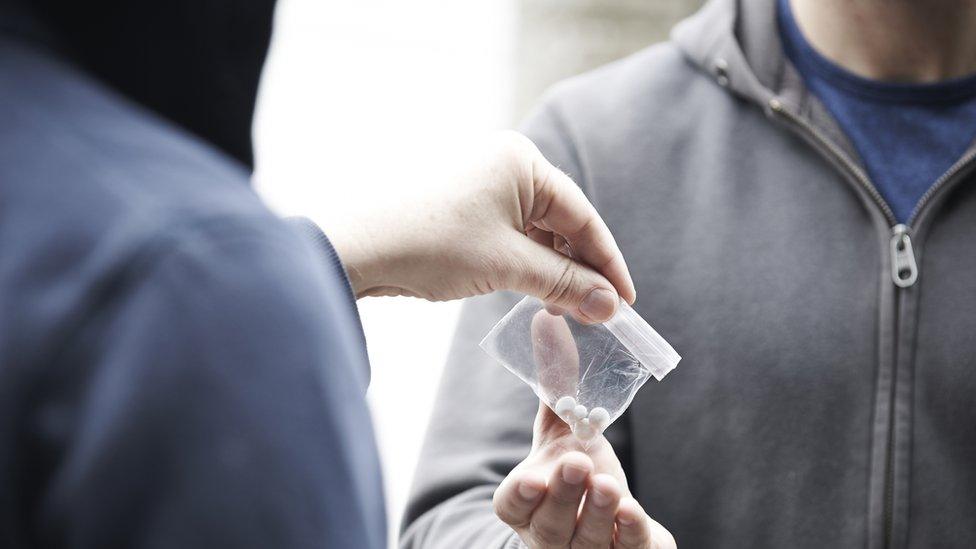
- Published16 September 2019
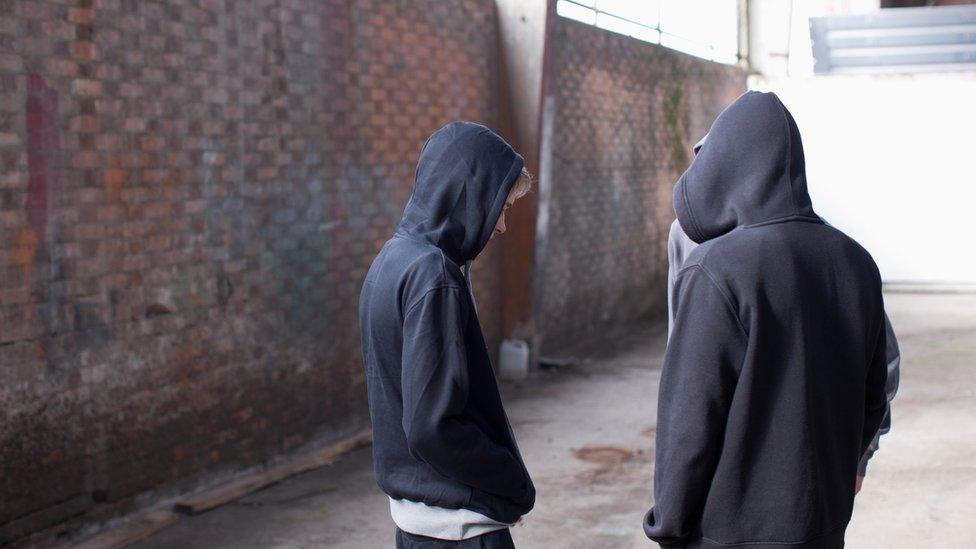
- Published15 August 2019
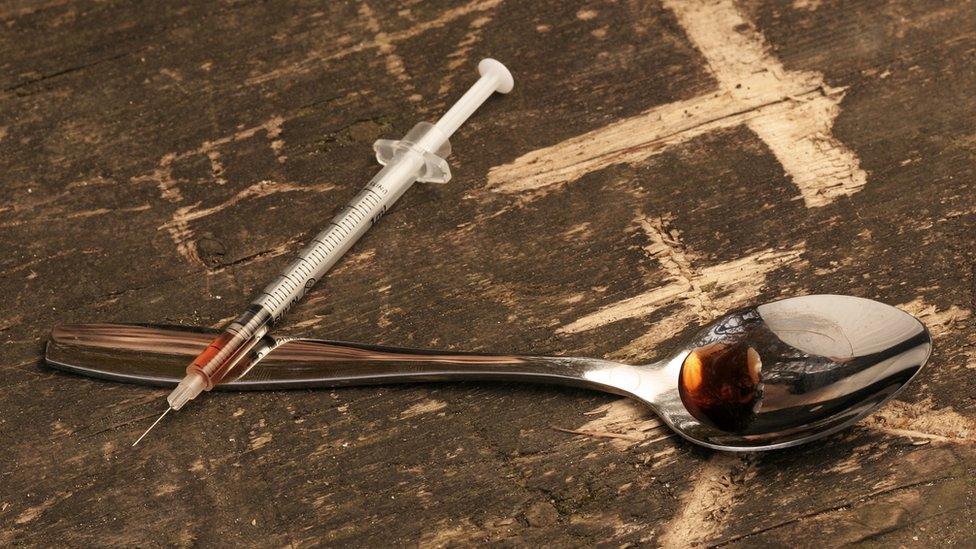
- Published15 August 2019
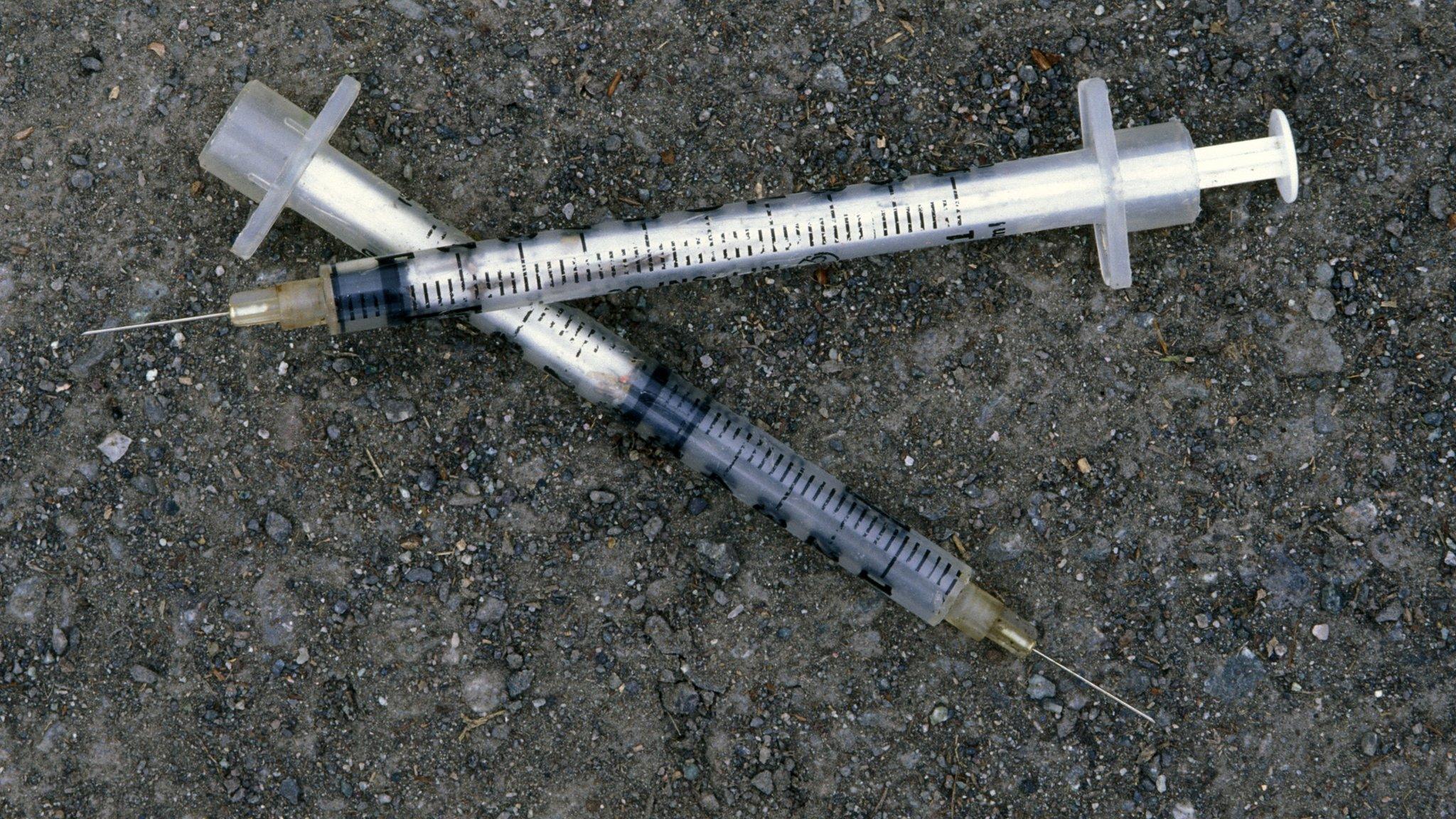
- Published15 August 2019

- Published16 May 2018

- Published24 February 2019
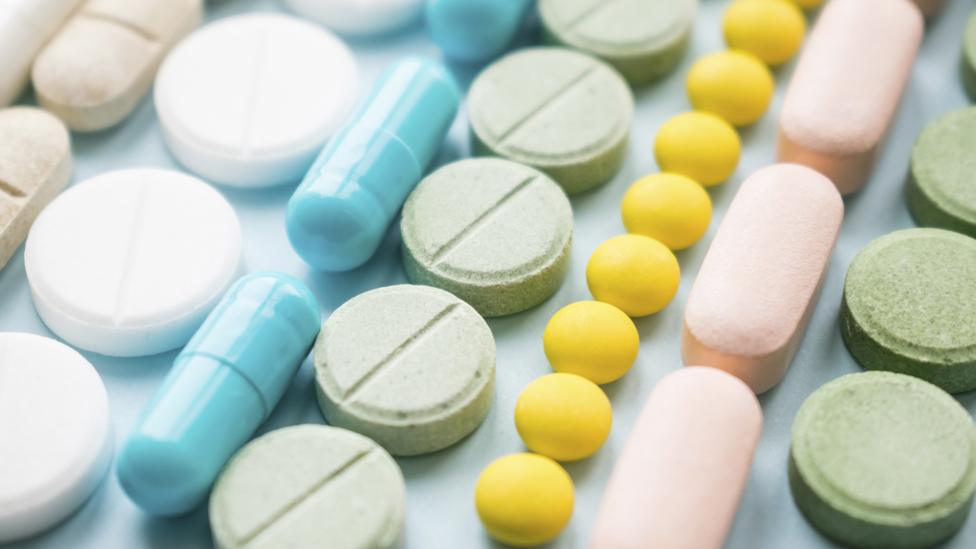
- Published13 January 2019
